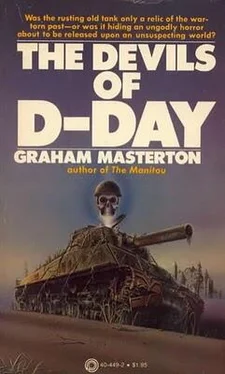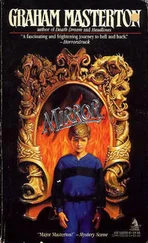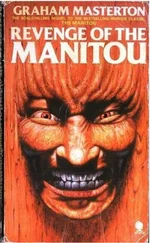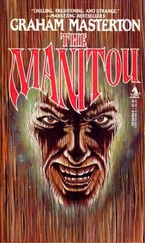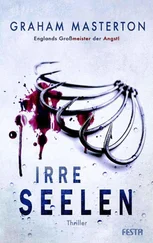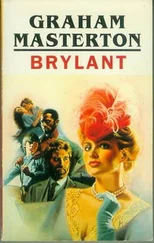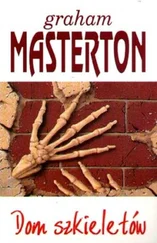I climbed out of the car into the cold night air. There was a single street lamp by the corner of an old weatherboard house, shining dimly through a halo of fog. You could tell we were close to a river by the bone-chilling cold, and an almost imperceptible movement in the air, as if ghosts were brushing past us, unseen and unheeded. I coughed.
Together, we walked up the sloping street. We looked right and left, but the village was deserted. Far away, across the other side of the river, we heard a train clattering towards Newhaven, and for a moment we saw the lights of its windows through the trees.
Madeleine said, “Dan—there’s a sign here.”
I peered through the fog. On one of the old flint walls, there was a white-painted notice reading: “St. Katherine’s Church & Vicarage”. It pointed uphill into the gloom. I turned back for a moment and looked at our Citröen, parked at an angle beside a low hedge, and then I said: “All right, then. We’d better see if the Reverend Taylor’s at home.”
My mouth felt as if I was chewing furry caterpillars. I reached out for Madeleine’s hand, and we walked as slowly as we could, but it only took a few steps before St. Katherine’s came into view around the houses—an ancient steepled church with a moss-covered lych-gate and a graveyard of leaning headstones. Close beside it, its windows warmly lit, was a Queen Anne vicarage, fronted with shiny blue-black bricks. There was a white porch trailed with leafless creeper, and an imposing black front door, as glossy as a coffin.
We walked across the street and approached the porch as quietly as we could. It somehow seemed sacrilegious to march around this silent fog-bound English village talking in strident voices. Madeleine leaned forward to read the engraved brass plaque on the door, and whispered, “There it is, Dan. The Reverend P. Woodfall Taylor.”
I pulled her closer, and kissed her cheek. She smelled of French perfume and soap. She said “Your nose is cold.” Then I lifted the weighty brass knocker and struck it twice. Across the road, someone switched on a bedroom light.
Inside the vicarage, I heard doors opening and closing. Then the sound of someone walking towards the door. A key was turned in the lock, and then a slice of light fell across the path, and an elderly face appeared at the crack in the doorway.
“Yes?”
I said, uncertainly: “Are you the Reverend Taylor, sir?”
“That’s correct. Did you want to see me?”
I coughed. “I’m sorry to disturb you, sir. But there’s something I have to discuss.”
The old man looked at me suspiciously. He had a crest of wiry white hair, and that ruddy, well-polished face that always makes me think of English clergy as a boxful of Carolina apples. He was wearing a clerical collar and carpet slippers, and a pair of shiny grey pants that looked as if he’d pressed them under the mattress. There were deep indentations at the side of his nose where he usually wore spectacles, and that was probably why his pale, bulging eyes were regarding me so fixedly.
“You’re American, aren’t you?” the vicar asked, in precise tones. He even pronounced “aren’t” as “ah-runt”. He said: “You’re not from the Mormons? Because I’m afraid I have nothing to say to the Mormons.”
“I’m not a Mormon, sir.”
“They’re a terrible pest, you know. And all this ridiculous nonsense about Moroni and Boroni.”
Madeleine said, “We’ve come about the tank.”
The vicar swivelled his jowly head in his stiff clerical collar and blinked at her. “The tank? How very odd.”
“Why is it odd?” I asked him. I wondered if he, like Eloise, had felt some kind of premonition or psychic wave.
“Well,” said the Reverend Woodfall Taylor, “they only came around to empty it on Tuesday.”
I stared at him uncomprehendingly and he stared back at me.
“The septic tank,” he explained. “Isn’t that what you meant?”
If I hadn’t felt so sick and serious about Elmek, I think I could have laughed. But all I could say was: “Not that tank, sir. The tank you once said prayers over in Normandy, during the war.”
His mouth slowly opened, as if some strong invisible hand was pulling his jaw down. He said, perplexed: “ Normandy? The tank in Normandy? ”
I nodded. “It’s been opened, Mr. Taylor. The devil’s got out.”
He stared at me in absolute slow-motion horror. Then he opened the door wide, and almost dragged us both into his cluttered little hall, among the crowded umbrella-stand and grandfather clock and coat-rack hung with ecclesiastical raincoats and hats. He slammed the door behind us, and locked it.
“You’d better come through,” he said worriedly, and ushered us into his sitting-room. “My wife is out tonight, organising a beadle drive for the women’s institute, and that’s probably just as well.”
The sitting-room smelled of pipe-smoke and logs. There was a wide open hearth, in front of which toasted a marmalade cat and three shabby armchairs. One wall of the room was lined with books like With Net And Specimen Jar In Lahore and The Way Of Christ Vol. IX , and on the chimney-breast was a muddy oil painting of the Sussex Downs at Fulking. The Reverend Taylor said: “Sit down, please, sit down. Perhaps I can get my woman to make you a cup of coffee. Or there’s whisky, if you prefer.”
“A whisky would be wonderful,” I told him. “We came all the way over from France this morning.”
The vicar went to an antique sideboard and took out three ill-matched glasses. He filled each with neat Vat 69, and brought them over to the fireside with trembling hands. He swallowed his where he stood, wiped his mouth with a crumpled handkerchief, and said, “Cheers.”
Madeleine said: “we’re looking for your help, Mr. Taylor. We know something about the devil, but not much. Ever since the war, it’s had a terrible effect on our village.”
“Oh, dear,” said the Reverend Taylor. “I told them this business would come to a bad end. I told them a hundred times. But oh no, they never listened. You do your part, they said, and we’ll take care of ours .”
“Who were they? ” I asked him.
The Reverend Taylor looked at me in surprise. “My dear fellow, I couldn’t possibly tell you that. Quite out of the question. I was bound by the Official Secrets Act, and unless I hear to the contrary, I still am.”
“Mr. Taylor,” I told him, “I don’t like to sound offensive, but this young lady and I are both in serious danger because of that tank, and I’m afraid the Official Secrets Act is going to have to go where the monkey put his nuts.”
There was a silence. A log in the crackling fire shifted and dropped, and a shower of sparks flew up the chimney.
The Reverend Taylor said, “I’m afraid I’ve never really understood that expression.”
Madeleine leaned forward intently. “Mr. Taylor,” she said, “you have to help us. The devil is threatening to kill us both, unless we help it to find its brethren.”
“It’s name is Elmek,” I said quietly. “The devil of sharp knives and cuts. If we don’t bring all thirteen devils together again, it has promised us the worst death that anyone could think of.”
The vicar sat back in his chair. His eyes went from Madeleine to me and back again. Then he said, “You know about it, don’t you? You know about it already.”
“Only some of it. Just a few fragments of information we managed to get together in France, and some good guesswork by Father Anton.”
“Father Anton!” said the Reverend Taylor, brightening. “I had no idea that he was still alive! I’m amazed! How is he? He was so kind to me during the war, you know. A real gentleman of the cloth.”
Читать дальше
